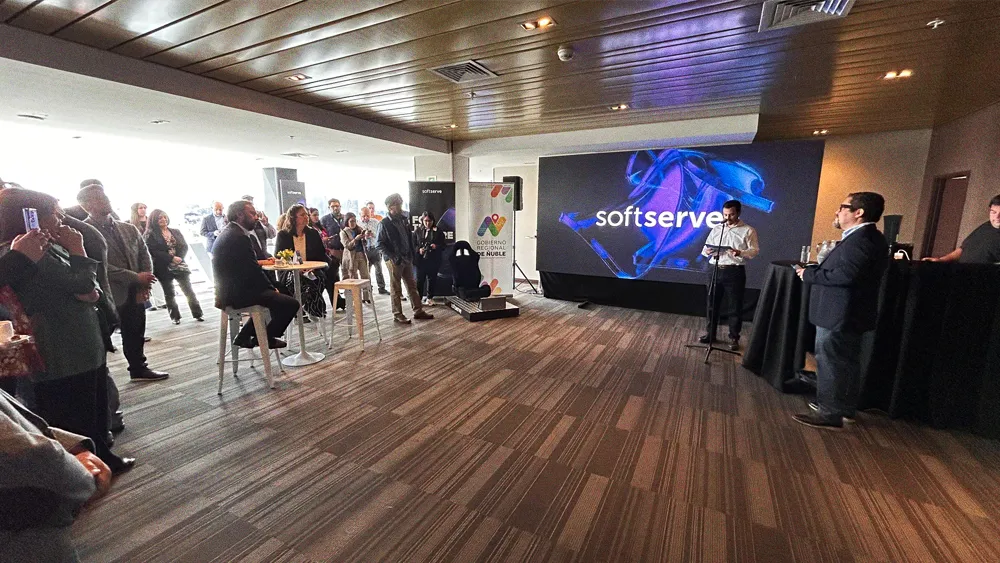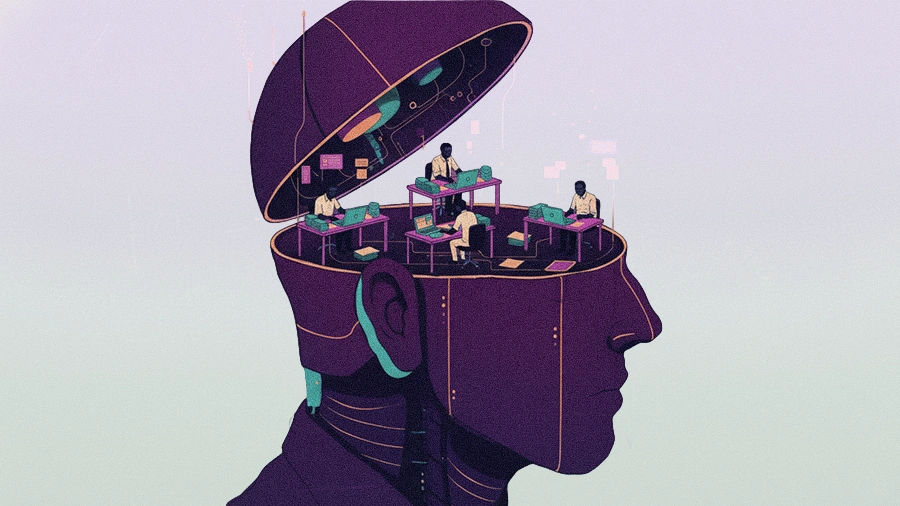As AI mandates rise, experts say upskilling must be a corporate responsibility

Key Points
As companies like Amazon began requiring employees to use AI for promotions, the question of who is responsible for upskilling became critical.
Jordan Morrow, SVP of Data & AI Transformation at AgileOne, says the onus is on corporations to provide enablement and literacy, not just technology.
Morrow warns that companies mandating AI without proper training were acting irresponsibly, overlooking the profound human and cultural impact.
He emphasizes that success in the AI era required a new formula combining data, AI, IQ, and, most importantly, emotional intelligence (EQ).
Shame on companies if they're not upskilling and reskilling and empowering their employees to be able to do this effectively. You can't just drop it on them like a bombshell. You should be providing not just the technology and the tools, but the availability for them to develop confidence, to develop skills.

Jordan Morrow
SVP of Data & AI Transformation
AgileOne
The World Economic Forum’s latest Future of Jobs Report reinforced what many have long predicted: creative thinking and AI literacy are now among the most critical skills for the modern workforce. Amazon recently announced that employees must demonstrate how they use AI to qualify for promotions, a move that signals not just a corporate policy shift but a precedent likely to ripple across other global employers. The message is clear: workers who fail to upskill risk being left behind.
But as Jordan Morrow—SVP of Data & AI Transformation at talent management leader AgileOne—argued, the responsibility cannot rest on individuals alone. Companies that mandate adoption without enabling their people to succeed have missed the point entirely.
“I’m okay with what Amazon is doing as long as they have provided the enablement and literacy to get it done. If they haven’t, shame on them,” Morrow stated. “Shame on companies if they’re not upskilling and reskilling and empowering their employees to be able to do this effectively. You can’t just drop it on them like a bombshell. You should be providing not just the technology and the tools, but the availability for them to develop confidence, to develop skills.”
In the frantic rush to integrate AI, many organizations are focused too squarely on the technology itself, often overlooking the profound cultural and human impact. Morrow described a dangerous pattern emerging, one where speed eclipses strategy. He warned that leaders are so fixated on what they can do with AI that they fail to consider what they should do for their people.
The Jurassic Park warning: “There’s a great quote from Jurassic Park: ‘Your scientists were so preoccupied with whether or not they could, they didn’t stop to think if they should,'” Morrow said. “And I think that’s what a lot of companies are doing. They’re preoccupied with the speed without understanding the impact it has downstream at their company.”
This preoccupation creates a dilemma for employees, who feel pressured to chase technical skills while hearing that “soft skills” are more important than ever. Morrow addressed this tension by reframing the debate entirely. He argued that human-centric skills are not “soft” at all; they are, in fact, the most difficult and valuable assets in the age of AI.
The formula for success: “I don’t like calling them ‘soft skills’ because they’re harder to learn than technical skills,” he explained. “I can teach someone to code the syntax. It’s tangible to measure whether or not someone can code. But I find the soft skills harder to teach, and understanding the human element is much harder to measure.”
If the future of work is to be sustainable, Morrow believes success requires a balance of technical and human strengths. He pointed to a formula he created—Data + AI + IQ + EQ = Success—as a reminder that true progress comes not just from mastering technology, but from pairing it with intelligence, empathy, and emotional awareness.
An ‘Earthrise moment’ for talent: “The famous Earthrise photo, taken when humans first orbited the moon, changed how we saw the planet—fragile, borderless, worth protecting. I think we’re at a similar moment for talent,” he reflected. “I want to see manual tasks eliminated as much as possible, freeing people to be more human, more curious and experimental, more imaginative. You might not be a marketing manager anymore; you might be a ‘problem solver,’ moving from a marketing project to a finance project based on the unique value your skills and experience bring.”
Of course, a skeptic might question whether this humanistic vision can survive in a corporate world that often prioritizes efficiency above all else. Morrow acknowledged the tension, but argued against being constrained by historical narratives of technological disruption. He believes we have the opportunity to aim for a more aspirational future.
The Star Trek possibility: “Right now, we often anthropomorphize AI by forcing it into old narratives,” he observed. “But why not focus on new possibilities? In Star Trek, people worked less, diseases like cancer were broken down into customized treatments, and hunger was eliminated. Why can’t we view AI through that lens?”
Morrow’s message was ultimately a call to re-center on people. The future, he argued, demands not just investment in technology but a deeper commitment to empathy, inclusion, and shared responsibility.
“Every person has a seat at the data and AI table,” he said. “For some, that’s simply asking how it can augment their role. Gut feeling and intuition are often just personal data points—we’re more data literate than we realize. What we need now is greater emphasis on emotional intelligence. If we lead with compassion and empathy and meaning, even amid displacement, we can steer this in the direction we want.”
I want to see manual tasks eliminated as much as possible, freeing people to be more human, more curious and experimental, more imaginative. You might not be a marketing manager anymore; you might be a 'problem solver,' moving from a marketing project to a finance project based on the unique value your skills and experience bring.

Jordan Morrow
SVP of Data & AI Transformation
AgileOne
I want to see manual tasks eliminated as much as possible, freeing people to be more human, more curious and experimental, more imaginative. You might not be a marketing manager anymore; you might be a 'problem solver,' moving from a marketing project to a finance project based on the unique value your skills and experience bring.

Jordan Morrow
SVP of Data & AI Transformation
AgileOne
Related articles
TL;DR
As companies like Amazon began requiring employees to use AI for promotions, the question of who is responsible for upskilling became critical.
Jordan Morrow, SVP of Data & AI Transformation at AgileOne, says the onus is on corporations to provide enablement and literacy, not just technology.
Morrow warns that companies mandating AI without proper training were acting irresponsibly, overlooking the profound human and cultural impact.
He emphasizes that success in the AI era required a new formula combining data, AI, IQ, and, most importantly, emotional intelligence (EQ).

Jordan Morrow
AgileOne
SVP of Data & AI Transformation

SVP of Data & AI Transformation
The World Economic Forum’s latest Future of Jobs Report reinforced what many have long predicted: creative thinking and AI literacy are now among the most critical skills for the modern workforce. Amazon recently announced that employees must demonstrate how they use AI to qualify for promotions, a move that signals not just a corporate policy shift but a precedent likely to ripple across other global employers. The message is clear: workers who fail to upskill risk being left behind.
But as Jordan Morrow—SVP of Data & AI Transformation at talent management leader AgileOne—argued, the responsibility cannot rest on individuals alone. Companies that mandate adoption without enabling their people to succeed have missed the point entirely.
“I’m okay with what Amazon is doing as long as they have provided the enablement and literacy to get it done. If they haven’t, shame on them,” Morrow stated. “Shame on companies if they’re not upskilling and reskilling and empowering their employees to be able to do this effectively. You can’t just drop it on them like a bombshell. You should be providing not just the technology and the tools, but the availability for them to develop confidence, to develop skills.”
In the frantic rush to integrate AI, many organizations are focused too squarely on the technology itself, often overlooking the profound cultural and human impact. Morrow described a dangerous pattern emerging, one where speed eclipses strategy. He warned that leaders are so fixated on what they can do with AI that they fail to consider what they should do for their people.
The Jurassic Park warning: “There’s a great quote from Jurassic Park: ‘Your scientists were so preoccupied with whether or not they could, they didn’t stop to think if they should,'” Morrow said. “And I think that’s what a lot of companies are doing. They’re preoccupied with the speed without understanding the impact it has downstream at their company.”
This preoccupation creates a dilemma for employees, who feel pressured to chase technical skills while hearing that “soft skills” are more important than ever. Morrow addressed this tension by reframing the debate entirely. He argued that human-centric skills are not “soft” at all; they are, in fact, the most difficult and valuable assets in the age of AI.
The formula for success: “I don’t like calling them ‘soft skills’ because they’re harder to learn than technical skills,” he explained. “I can teach someone to code the syntax. It’s tangible to measure whether or not someone can code. But I find the soft skills harder to teach, and understanding the human element is much harder to measure.”

Jordan Morrow
AgileOne
SVP of Data & AI Transformation

SVP of Data & AI Transformation
If the future of work is to be sustainable, Morrow believes success requires a balance of technical and human strengths. He pointed to a formula he created—Data + AI + IQ + EQ = Success—as a reminder that true progress comes not just from mastering technology, but from pairing it with intelligence, empathy, and emotional awareness.
An ‘Earthrise moment’ for talent: “The famous Earthrise photo, taken when humans first orbited the moon, changed how we saw the planet—fragile, borderless, worth protecting. I think we’re at a similar moment for talent,” he reflected. “I want to see manual tasks eliminated as much as possible, freeing people to be more human, more curious and experimental, more imaginative. You might not be a marketing manager anymore; you might be a ‘problem solver,’ moving from a marketing project to a finance project based on the unique value your skills and experience bring.”
Of course, a skeptic might question whether this humanistic vision can survive in a corporate world that often prioritizes efficiency above all else. Morrow acknowledged the tension, but argued against being constrained by historical narratives of technological disruption. He believes we have the opportunity to aim for a more aspirational future.
The Star Trek possibility: “Right now, we often anthropomorphize AI by forcing it into old narratives,” he observed. “But why not focus on new possibilities? In Star Trek, people worked less, diseases like cancer were broken down into customized treatments, and hunger was eliminated. Why can’t we view AI through that lens?”
Morrow’s message was ultimately a call to re-center on people. The future, he argued, demands not just investment in technology but a deeper commitment to empathy, inclusion, and shared responsibility.
“Every person has a seat at the data and AI table,” he said. “For some, that’s simply asking how it can augment their role. Gut feeling and intuition are often just personal data points—we’re more data literate than we realize. What we need now is greater emphasis on emotional intelligence. If we lead with compassion and empathy and meaning, even amid displacement, we can steer this in the direction we want.”




